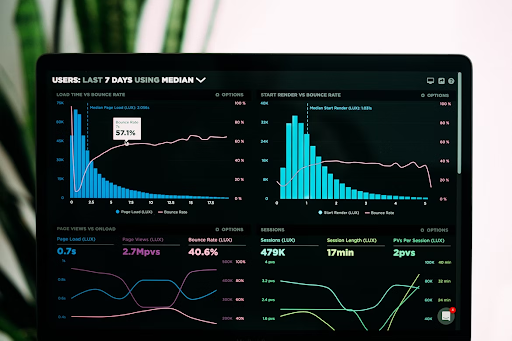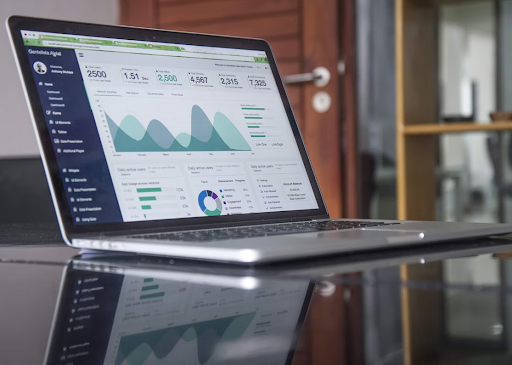
The importance of big data analytics has been increasingly recognized in recent years. This is because big data is a potent tool that can assist organizations in making better decisions, identifying and solving problems, and improving their operations. This article will discuss some of the benefits of data analytics and provide a few examples of how it can be used in business.
Data analytics is crucial because it allows businesses to collect massive amounts of data never before. This metadata can then be used to create insights that were previously impossible to obtain. Data analytics has the potential to change the way businesses operate in ways that are far-reaching and impactful.
With much data available at our fingertips, it's now easier for organizations to make informed decisions about their operations. This means businesses can make smarter choices about which products to produce, which employees to hire, and which marketing campaigns to pursue.
What is Data Analytics?
It is a technique that can be used to analyze large amounts of data to gain insights that can be used to improve business processes. Organizations can improve their operations by understanding big data by identifying and resolving issues early, optimizing resources, and increasing profits.
It can also be defined as using big data to improve business processes and decision-making. The key to success with this data analytics is understanding how to use the data to enhance your business. Here are tips for getting started with data analytics.
1. Start with the DataData
The first step in any data analytics project is to gather the DataData you need. This may include collecting customer information, monitoring financials, or tracking product sales. Once you have the data, you need to identify what you want to learn. This may involve analysis of trends, comparisons between different groups of data, or predictions about future outcomes.
2. Analyze the Data
After collecting and analyzing the data, you need to understand it. This involves looking at the data in terms of dimensions (such as size, location, and time) and then sorting and grouping it in ways that make sense. You can also use machine learning algorithms to predict future behavior based on past behavior.
3. Use the Data for Decision Making
In contrast to the older model, which depends on pre-defined structures for data storage and retrieval, data analytics relies on an open architecture that allows for the analysis of any data.
Importance of Big Data Analytics

Data analytics applications can improve decision-making: Businesses can better understand customer behavior and what drives purchase decisions by collecting massive amounts of data. This information is then used to improve marketing campaigns and product offerings.
Can help speed up the processes: By understanding the patterns and trends in large datasets, businesses can speed up decision-making processes and improve overall efficiency. This can help companies stay ahead of their competition and remain competitive in an ever-changing market landscape.
Real-time Benefits of the Data Analytics
When it comes to analytics on big data, the benefits are real-time. With the right tools and approach, businesses can glean insights in near-real-time, making decision-making quicker and more accurate. Here are four key benefits of this data analytics:
1. Improved Customer Experience
With this data analytics, companies can track customer interactions in near-real-time and identify problems quickly. This allows them to provide a better customer experience by quickly resolving issues and providing improved service. Furthermore, it will enable businesses to target marketing campaigns more effectively, as they can see which customers are most likely to respond positively to a particular offer.
2. Improved Productivity and Efficiency
Extensive data analytics can help businesses improve their productivity and efficiency by identifying patterns and trends in their data. For example, suppose a company is manufacturing products. In that case, extensive data analytics can help them determine which parts are being made in the production line, leading to increased efficiency and decreased waste.
3. Increased Revenue Generation
By understanding customer behavior and preferences, businesses can increase revenue by tailoring their offers specifically to those who have shown an interest in their products or services. Additionally, they can use predictive modeling techniques to make predictions.
Real-time Benefits of massive data Analytics

Real time data software has the potential to provide real-time benefits for businesses. By understanding and analyzing large amounts of data, companies can improve their operations and dramatically reduce the time it takes to make decisions. Here are five key reasons why massive data analytics is so important:
- It can help you identify and fix problems quickly. By tracking all aspects of a company's operation in real-time, data analytics can help you identify problems early and fix them before they become significant issues. This saves both time and money.
- Data analytics can help you understand customer behavior. Tracking customer trends over time, you can better understand how they interact with your products or services. This knowledge can help you target promotions or changes to your product offerings accordingly.
- It can help you optimize your business processes. By understanding which steps in your business process are most inefficient, you can streamline them for increased efficiency. This reduces costs and improves performance overall.
- Data analytics can help you predict future trends. By understanding how customers behave over time, you can anticipate what trends will occur in the future and make decisions accordingly.

Final Thoughts
The big data analytics revolution is here. By 2025, the world will generate more than 2.5 quintillion data points. This abundance of data will require organizations to adopt new, innovative ways of analyzing and understanding data to make intelligent decisions.
The benefits of this analytics are clear: By enabling organizations to analyze large amounts of data more quickly and efficiently, data analytics can help identify trends and patterns that would be difficult or impossible to detect using traditional methods. Additionally, it can help businesses improve their operations and deliver better customer experiences by providing insights into customer behavior and performance.



